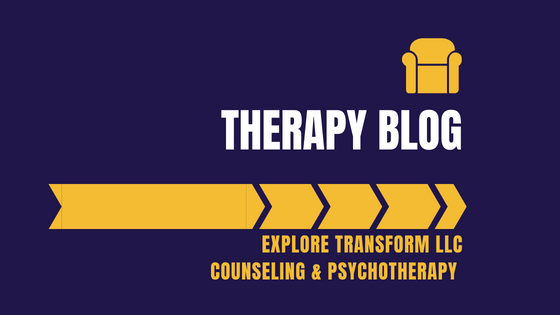|
Last month there was an initiative to raise more awareness about sexual assault. At least one in six men have been sexually violated (1in6.org), and experts say that the number is probably even higher because men are less likely to report when they have been sexually assaulted or raped.
According to 1in6.org, it takes a man an average of 22 years to speak about his experiences as a survivor of sexual violation. Society conditions men to remain silent, and to hide their vulnerability. If a man were to report his own sexual violation, this might be viewed (by some) as a direct contradiction to this conditioning. This might mean a man might not recognize himself as a survivor of sexual violation, or he is too ashamed to report it, or other people might not believe him. Another issue is that society often interprets men’s behavior through the lens of aggression or anger, rather than an expression of distress, including a sign that they have experienced trauma. This is further complicated when people confuse sexuality and sexual violence, assuming sexual violence is sexual act rather than an act of violence. As a result, many people fail to appreciate the number of straight men who are a survivor of sexual violence. If you have experienced sexual violation, or you know someone who has, you might feel emotionally numb, or you might be stuck in hypervigilance, which means you are easily startled or quick to get angry or upset. Here is a little more on each of these concepts – Emotionally numb – Another term for this is dissociation. To survive the experience of sexual violation, your brain might have shut down for a moment. It did what it needed to, otherwise the experience might have been overwhelming. The trouble is, the danger has now passed, so you need to reconnect with your emotions, your thoughts, and your body. With the help of a trained professional, such as a psychotherapist, you can learn some grounding exercises, to become aware of your whole self. It is important to know that you have not necessarily become emotionally numb forever. It was a survival mode that should, with the right help, become a temporary state. Hypervigilance, easy to become startled or get angered or upset – If you were sexually violated, your body probably went into fight or flight mode. Your sympathetic nervous system kicked in, sending the blood pumping around your body, and readying your body to fight or flee. The trouble is, you were not able to get away, and so your brain and body are still stuck in that fight or flight mode, stuck in hypervigilance. It is as if your brain and body have unfinished business, leaving your brain on edge, and causing you to jump at even the slightest sudden noise, smell, touch or thought. You are still ready for attack, long after the danger has gone. All of this can have an impact on your intimate relationships, your sense of trust of other people, the way you work, your concentration levels, your sleep, and your appetite. It is also a constant drain on your body. You may deal with it by isolating yourself or trying to keep things under excessive control (which, in turn, leads others to tire of you, dismissing you unkindly as a ‘control freak’). You may even engage in substance abuse, as a way of escaping this constant sense of panic. What can help Talking to a trained professional, such as a psychotherapist, is an important step to take. With the help of a psychotherapist, you will do three things –
There are different types of psychotherapy available, and one particularly effective approach for trauma is Eye Movement Desensitization and Reprocessing therapy (EMDR). EMDR is recognized as an “A” level of treatment for trauma, recommended by the World Health Organization and the National Institute for Clinical Excellence. There are other types of therapy, and most will focus on your thoughts, emotions, and bodily sensations. It is important to include work on the body, as that acts as a bridge between your thoughts and emotions. You hold a great deal of your trauma in your body, causing all sorts of physical symptoms including stomach cramps, constipation, migraines, and nausea. No matter what approach your therapist takes, it is essential that you look out for your negative, self-critical voice. If you are the survivor of sexual violation, and you are carrying shame, this critical voice will be turned up to full volume. Work with your therapist to turn down the volume on this critical voice, replacing judgement with understanding. Understand that your thoughts, emotions and body may have done all sorts of things to survive the sexual violation. For example, you might have engaged in escapist behavior, such as denial or substance abuse, or you may have lashed out (at others or yourself) with the rage that you were feeling. Understand that this was what you had to do to survive. These might not have been constructive coping mechanisms, but they were all you had to survive, and now is the time to replace these with more helpful coping mechanisms. I hope you found this useful. Please get in contact if you need to discuss any of this. Book online today for a free callback. Alternatively, you can email us at [email protected] or call us on +1 (201) 779-6917. Chris Warren-Dickins LLB MA LPC Explore Transform LLC Counseling and Psychotherapy in Bergen County, New Jersey www.exploretransform.com +1 (201) 779-6917 Comments are closed.
|
Due to the COVID-19 health crisis, we are only offering sessions online.
Our address is 143 E Ridgewood Ave, #1484, Ridgewood, NJ 07450
Telephone: +1-201-779-6917
Lead clinician: Chris Warren-Dickins LLB MA LPC
EXPLORE TRANSFORM LLC
Our address is 143 E Ridgewood Ave, #1484, Ridgewood, NJ 07450
Telephone: +1-201-779-6917
Lead clinician: Chris Warren-Dickins LLB MA LPC
EXPLORE TRANSFORM LLC
© COPYRIGHT 2024 CHRIS WARREN-DICKINS. ALL RIGHTS RESERVED. NJ LICENCE # 37PC00618700



 RSS Feed
RSS Feed
